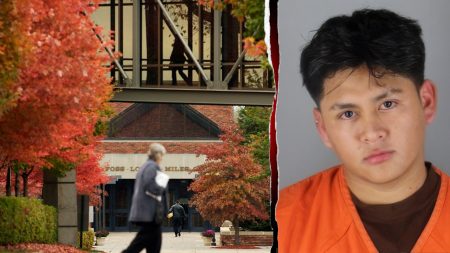Court Rules Ontario Man Has No Legal Claim to Hidden Cash Found During Police Search
Unexpected Discovery Raises Questions About Property Rights and Police Procedures
In a ruling that explores the complex intersection of property law, police authority, and civil asset forfeiture, an Ontario court has determined that a substantial amount of cash discovered during a police search does not lawfully belong to the resident of the property where it was found. The decision, which comes after months of legal proceedings, highlights the nuanced legal frameworks governing unexpected discoveries during law enforcement operations and sets a potentially significant precedent for similar cases in the future.
The case began when police officers executed a search warrant at a residential property in Ontario, primarily seeking an illegal firearm they believed was concealed on the premises. According to court documents, investigators had received credible intelligence suggesting the resident, whose identity remains protected under privacy provisions, was in possession of an unregistered weapon. While meticulously combing through the property, officers made an unexpected discovery – a significant cache of cash hidden within the residence. The precise amount remains undisclosed in public records, but sources familiar with the case indicate it was substantial enough to trigger automatic investigation protocols under Canada’s proceeds of crime legislation.
Legal Battle Over Unexpected Findings Raises Constitutional Questions
The discovery immediately triggered a complex legal battle, with the resident asserting ownership rights over the found currency while authorities questioned its provenance. The resident’s legal team mounted a multi-faceted defense, arguing that the search had exceeded the scope of the original warrant, which specifically authorized a search for weapons, not cash or other valuables. They further contended that in the absence of direct evidence linking the money to criminal activity, their client should be presumed the rightful owner of property found within his residence. This position drew upon established legal principles regarding possession and presumption of ownership – typically, items found within a person’s home are presumed to belong to the resident unless compelling evidence suggests otherwise.
Prosecutors presented a markedly different interpretation of the circumstances, maintaining that the discovery fell within the “plain view doctrine,” which permits officers to seize evidence of crimes even when not specifically mentioned in a search warrant if such evidence is discovered in plain view during a lawful search. They further emphasized that the manner in which the cash was concealed, combined with the resident’s inability to provide documentation or explanation for such large sums, created reasonable suspicion regarding its legitimacy. Financial forensics experts testified that the storage method and lack of documentation were consistent with patterns commonly seen in proceeds from illicit activities. “The totality of circumstances surrounding this discovery raised significant red flags that couldn’t be ignored,” explained Crown Prosecutor Elaine Townsend during proceedings. “When large amounts of cash are found concealed in unusual locations, without any documentation, banking records, or plausible explanation for their presence, it warrants further investigation.”
Court’s Decision Hinges on Burden of Proof and Circumstantial Evidence
Justice Martin Henderson, who presided over the case, delivered a comprehensive 42-page ruling that carefully weighed competing legal principles and evidentiary standards. The court ultimately determined that the burden of establishing legitimate ownership fell to the resident once the circumstances of discovery created reasonable doubt about the cash’s origins. In his written decision, Justice Henderson noted, “While the court respects the sanctity of private property and the general presumption that possessions found within one’s dwelling belong to the resident, this presumption is rebuttable when circumstances strongly suggest alternative possibilities.” The ruling emphasized that the resident had failed to produce any evidence – such as withdrawal records, business receipts, tax filings, or inheritance documentation – that could substantiate legitimate ownership of such substantial funds.
The decision also addressed constitutional concerns regarding search and seizure limitations, concluding that while the warrant had indeed specified weapons, the discovery of the cash occurred during the lawful execution of that warrant and did not constitute an impermissible expansion of the search. “Officers were methodically searching areas where a firearm could reasonably be concealed,” wrote Justice Henderson. “The discovery of hidden currency in such locations was incidental to this legitimate law enforcement activity and does not represent an overreach of authority.” Legal experts have noted the significance of this aspect of the ruling, as it reinforces law enforcement’s ability to act upon evidence of separate crimes discovered during properly executed searches, even when such evidence was not the original target of the investigation. Criminal defense attorney Alexandra Michaels, who was not involved in this case but specializes in search and seizure law, commented that “this ruling balances law enforcement’s need for practical flexibility with constitutional protections against unreasonable searches, finding that when officers are lawfully in a position to discover evidence, they need not ignore it simply because it differs from what they initially sought.”
Implications for Future Cases and Civil Liberties Concerns
The ruling has sparked considerable discussion among legal scholars and civil liberties advocates regarding its broader implications for property rights and police authority. Professor James Richardson of Osgoode Hall Law School noted, “This case illustrates the sometimes uncomfortable tension between presumption of innocence and the practical realities of unexplained wealth. While we generally want to protect citizens from having to prove their innocence, circumstances like these present legitimate questions about when the burden may shift.” Civil liberties organizations have expressed concern that such rulings could potentially create a slippery slope toward expansion of civil forfeiture, a process by which governments can seize assets suspected of being connected to criminal activity without necessarily proving criminal charges against the owner.
The Canadian Civil Liberties Association, while not directly involved in this specific case, has previously cautioned against overly permissive standards for asset seizure. “There’s a delicate balance to be struck between preventing criminals from profiting from illegal activities and protecting innocent citizens from having their property unjustly taken,” said Morgan Campbell, a spokesperson for the organization. “Cases like this highlight the need for clear, stringent standards and robust procedural protections.” The resident’s legal team has indicated they are reviewing the decision and considering an appeal, suggesting this case may continue to work its way through higher courts. Legal observers note that appellate review could provide valuable clarification on several nuanced questions regarding the intersection of property rights, criminal procedure, and evidentiary standards in similar cases. For now, however, the court’s decision stands: the hidden cash found during the weapons search does not lawfully belong to the man on whose property it was discovered, underscoring the complex legal terrain surrounding unexpected discoveries during police investigations.










